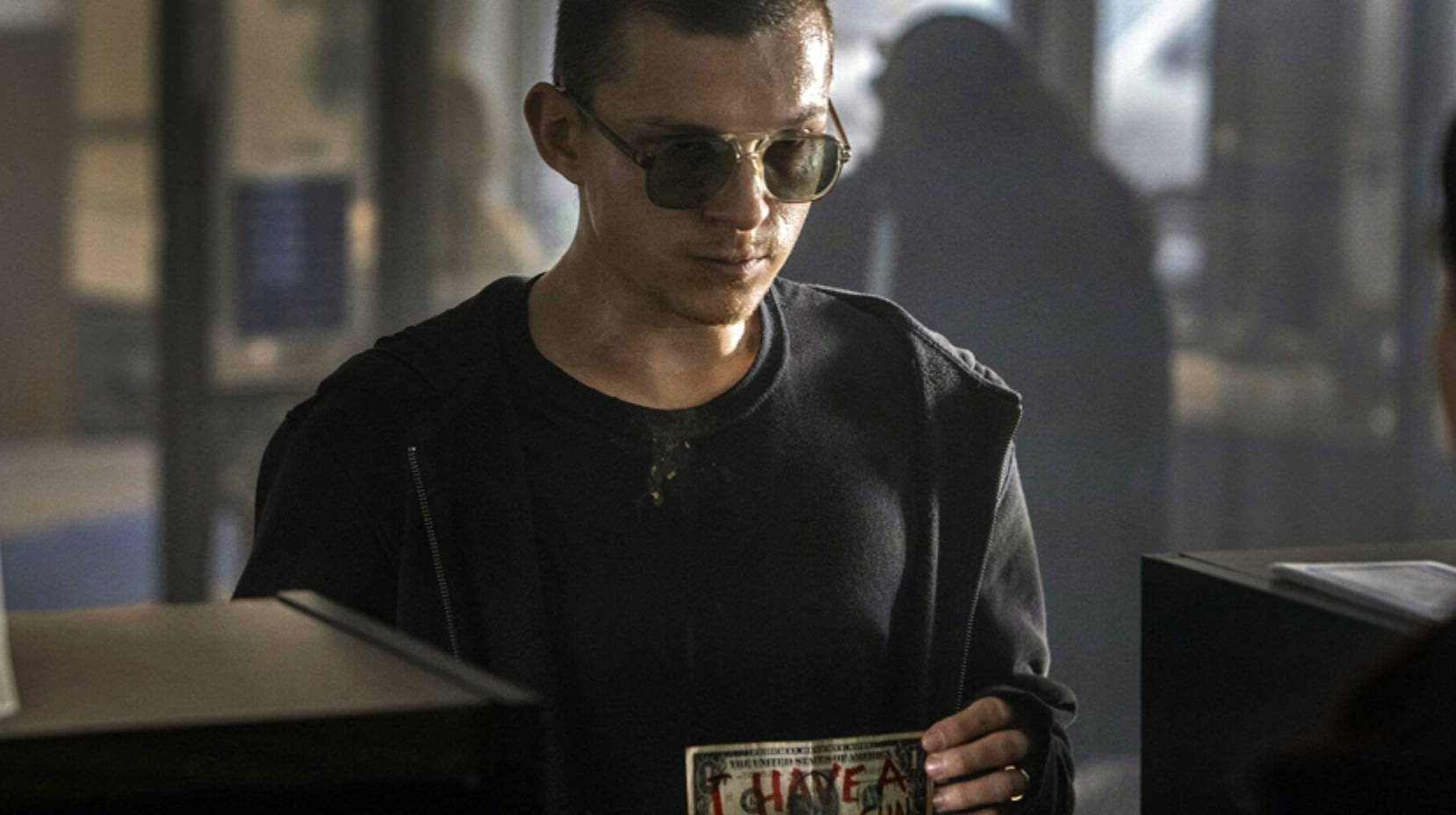Final Draft
Jessica Goldberg and Angela Russo-Otstot on co-writing the Russo Brothers' 'Cherry'
Vanessa King | February 10, 2021

Apple TV+'s new crime drama Cherry is a film directed by Anthony and Joe Russo (best known for their directorial work on multiple films within the Marvel universe) and from a screenplay written by Angela Russo-Otstot and Jessica Goldberg, adapted from the novel of the same name, a semi-autobiographical work by author Nico Walker. Cherry is a compelling film that stars Tom Holland as an army veteran who resorts to robbing banks to support his opioid addiction.
When the Russos acquired this project, Angela says, "We're from Cleveland, so it's a personal story."
"We [Angela and Jessica] were working on another project together when we signed on to adapt Cherry, so Angela brought me to Cleveland to get a sense of the city. We walked around locations mentioned in the book — the feeling in this film is really just presented by the city itself. It's a town wrecked by an opioid and a financial crisis, like so many towns in America."
On the process of adapting a book, Angela says, "The screenplay definitely needed to depart from the book — at the end of the day, it mirrors the book, but it is different. Writing it was a two-part process… first we had to step away from the book to find a structure that works within the context of a film narrative. We needed to identify a strong love story to serve as the core/throughlines with Cherry the protagonist."
"Once we solidified the structure and love story, we were able to focus on who these characters in this film are at their core and how their traumas affect each other," says Jessica.
"We went back into the book to pull over different details and allowed things to resonate… we were able to illuminate the character’s unique perspective."
Added Angela, "We went back through the script to make sure it remained character-reflective. We wanted to elicit empathy through character — these difficult experiences that Cherry is going through require compassion from others who may not have experienced those perspectives."
Jessica continues, "The way in which the Russos developed the script was really incredible and we were a part of the process from the beginning."
Angela remarks, "There were so many discussions about what the story was about at its core; sadly, at this point, most people have been touched by addiction so we wanted to talk about the themes within addiction and find the frame from which we could discuss everything — especially the bigger ideas presented in the book; we decided what we wanted to frame was the love story."
Jessica adds, "I had never experienced writing a film the way we wrote Cherry. We would sit in a room and the Russos would read the movie out loud; very much like being in a theater, being a part of a staged reading, hearing the movie, talking about the movie. It feels cohesive because you’re a part of the singular discussion."
Jessica and Angela come from TV, and so do directors Anthony and Joe; so as a team, collaboration and conversation on Cherry came naturally.
Angela remarks, "There’s a moment — when I go back into the script after Jessica has done her work, I’m staring at a page and working with Jessica and Nico Walker’s words — it’s a celebration of what's already there on the page that has been created with other writers. There’s such a valuable experience working with other writers in a co-writing capacity; there's a respect and an understanding from where the story comes from and how each individual's work is moving the story forward. We do it on a day-to-day in TV... but it can be a lonely thing to write for film, so having others to work with was both familiar and encouraging."
Jessica, creator of Hulu's The Path, is a Tennessee Williams Fellow who comes from a theater-writing background. We discussed how writing for stage influences writing for other media.
"I think the styles do influence each other," she said.
"Particularly television, which is character-driven much like theater. You're writing characters with interesting flaws and engaging conversation, so that transition is very natural. Knowing how to write for stage, I think, makes you a better TV writer. With film, however, it’s more plot-driven, so it forces you to rely on your skills in theater to develop empathetic characters who also have a humanity."
"I think the styles do influence each other," she said.
"Particularly television, which is character-driven much like theater. You're writing characters with interesting flaws and engaging conversation, so that transition is very natural. Knowing how to write for stage, I think, makes you a better TV writer. With film, however, it’s more plot-driven, so it forces you to rely on your skills in theater to develop empathetic characters who also have a humanity."
Angela jumped in, "Working with writers, there are those that identify structure and then build character — I build from character and find the structure from there. I’m a fan of playing with structure and working within a non-linear structure. It offers so many ways to reveal more about your characters if you're willing to play with structure."
Jessica adds, "I start from character but I do think over the years I have developed a 'math' with regards to screenwriting, especially for screenplays. You have cards and scenes — you arrange it and rearrange it and arrange it again and suddenly, you've busted the norm with a new equation to tell your story. It’s a whole other part of my brain that I really enjoy using — especially considering I never thought of myself as a mathematician."
Angela adds, "I’ve often said I’m bad at math but I do apply it to writing, finding proper formula. Especially adapting from an original work, it’s finding the pieces in the book that create the equation you need to make the story shine. We changed the story a bit, but wanted to honor the sprit of the book and its nuance and detail so we were pulling the pieces from the story into the script in different combinations; there was a lot of math that went into that, as well."
On the process of writing, Final Draft asked Jessica and Angela their routines. Jessica responded, "I write Monday through Friday and I definitely try to write five hours a day; sometimes it’s various projects, sometimes I’m getting notes, but those are my hours of work. I try to make time a couple mornings a week where I write for myself. I think that's important."
Angela says, "I do have dedicated hours for writing. The biggest challenge is getting into the headspace; not sure how it developed over the years but I have my trick — especially when I'm working on multiple projects at one time — I use a trigger song. I will listen to the same song for a project each time I’m getting ready to write it. For me personally it forces me to focus in and find inspiration to write."
Cherry is a cohesive story with a wonderfully constructed dramatic build, beautifully established character arcs, and a well-developed plot. Its seemingly effortless narrative reveals the work that went into reconstructing this crime genre story, but Cherry also defies the genre. It's a deeply human story about a young man who is living, like so many Americans, in a difficult post-9/11 world.

